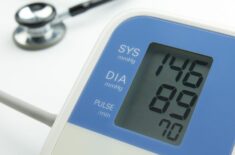Missed your period and wondering if you could be pregnant?
In this article, we’ll talk about all the common symptoms from the early stages of your pregnancy down to the rarest pregnancy signs.
Could you be pregnant? Or are you just PMS-ing? We’ll discuss the difference between the two, explain the causes of your symptoms, and let you know what to do next if your pregnancy test result is positive (or negative).
When Do Early Pregnancy Symptoms Start?
Every woman and every pregnancy is different. While some expecting mamas experience the first signs of pregnancy within a week of conception, some don’t experience the most common symptoms of pregnancy for a few weeks.
What Are The Top 10 Signs Of Early Pregnancy?
1. Missed Period.
Pregnant women will likely miss their next menstrual period four weeks after conception. (1)
Once implantation is complete, the woman’s developing placenta will start producing (hCG) human chorionic gonadotropin, one of the main pregnancy hormones. This hormone alerts the ovaries to stop releasing mature eggs for the following months to help the body maintain the pregnancy. (2)
The hCG levels in your urine can be detected as early as six days after implantation. (2)
In the case of an irregular period, a pregnancy test is necessary to confirm pregnancy. (3)
2. Light Bleeding Or Implantation Bleeding.
The pregnancy is still developing on a cellular level from weeks 1-4. At around four weeks after conception, the blastocyst (the fluid-filled group of cells that will eventually turn into the fetus’ body parts and organs) will start to implant in the uterus lining.
This process causes implantation bleeding, which can be mistaken for a light period since it usually occurs when you expect your next period. However, not everyone experiences implantation bleeding. (4)
Signs Of Implantation Bleeding:
- Implantation bleeding is not as strong as your regular menstrual period. It is often described as light bleeding that doesn’t turn into a strong enough blood flow to need a tampon.
- The discomfort is usually milder than the usual menstrual pain and may involve cramping. Although the pain accompanied with implantation bleeding may be moderate to severe at times, it’s most often milder.
- Lastly, implantation bleeding episodes usually stop on their own and don’t require treatment.
3. Morning Sickness.
Nausea, morning sickness, sensitivity to smells, and vomiting usually occur around 4-6 weeks into the pregnancy. (1)
Even though it’s referred to as morning sickness, it occurs any time of the day or night. Many pregnant women experience mild to severe morning sickness during the first trimester but mostly ease up as the second trimester comes. (5)
Tips To Lessen Discomfort:
- Use pregnancy-safe essential oils.
- Keep saltine crackers near your bed and eat a few before getting up in the morning to help settle morning sickness.
- Stay hydrated.
4. Frequent Urination.
Increased blood volume is a part of pregnancy, causing the kidneys to process more fluid than usual. This leads to a fluid increase in a pregnant woman’s bladder, causing frequent urination. (1)
Tip To Lessen Discomfort:
- Plan your bathroom trips ahead of time to avoid incontinence or leaking urine.
5. Tender Breasts.
Breast changes like tingling, swelling, and aching often occur around 4-6 weeks into the pregnancy. These breast changes will likely go away when your body has adjusted to the hormonal changes. (1)
Tips To Lessen Discomfort:
- Buy a comfortable, supportive maternity bra made of cotton with no underwire.
- Choose a bra with adjustable clasps to give you more room to “grow” in the coming months.
6. Fatigue, Sleepiness, & Tiredness
The progesterone levels increase during the early weeks of pregnancy, causing sleepiness, fatigue, and exhaustion. (4)
Tips To Combat Fatigue:
- Sleep as much as you can.
- Keep your bedroom cool to encourage better sleep.
7. Bloating, Constipation, Heartburn, Or Indigestion.
Bloating can also occur during the early weeks of pregnancy, which may be due to hormone changes. This could affect your digestive system, leading to heartburn, constipation, and bloating. (1)
Tips To Lessen Discomfort:
- Eat small meal portions throughout the day rather than a few large ones.
- Sit upright for at least an hour after meals for better digestion.
- Talk to your doctor about pregnancy-safe antacids.
8. Mood Swings.
Pregnancy causes an increase in estrogen and progesterone levels, which affects your mood and makes you more emotional than usual. Frequent changes in moods are common during pregnancy and may cause depression. (6)
9. Basal Body Temperature Changes.
Increases in the hormone progesterone in pregnant women can slightly raise the body temperature. As the pregnancy progresses, the increased blood flow causes a pregnant mama’s basal body temperature to increase as well. (7)
Light, pregnancy-safe exercises, and the hot weather can also be contributing factors.
Be careful about extremely hot or cold temperatures during your pregnancy because these can increase the risk of preterm birth. (8)
10. Increased Heart Rate
During pregnancy, your blood volume increases to supply sufficient blood for your growing baby. This leads to an increased heart rate. Talk to your doctor if palpitations worry you. (9)
During your first prenatal checkup, a medical professional will take your blood pressure to establish the baseline of your normal blood pressure reading.
Tips To Lessen Discomfort:
- Switch to pregnancy-friendly exercises if you haven’t already.
- Track your blood pressure regularly.
- Consult your doctor about dietary guidelines to help regulate blood pressure.
- Stay hydrated and snack regularly to help prevent dizziness.
- Stand up slowly.
Other Symptoms of Early Pregnancy
Food Cravings Or Food Aversions
Caused by a heightened sense of smell. (10)
Headaches
The increased blood volume, hormone changes, and nausea could contribute to occasional headaches. (10)
Acne
If you’ve had bouts with acne before pregnancy, you may experience breakouts again because of hormone changes. (10)
Pregnancy Glow
This is caused by the increased activity of your oil glands that give your skin a flushed, glossy appearance. (11)
Changes In Cervical Mucus
These are caused by hormonal changes and your body’s way of defending against infections. (10)
Excess Saliva
Your body’s increased hormone production can also cause the overproduction of saliva. (10)
Stuffy Nose
Hormonal changes and increased blood flow also affect the mucus membrane, causing the blood vessels to swell. (4)
Metal-Like Taste In The Mouth
This is called dysgeusia and is also caused by changes in estrogen hormone levels. (10)
Dizziness Or Motion Sickness (10)
Important: Ask your doctor about any pregnancy symptoms that interfere with your daily life to help you find relief and comfort during your pregnancy journey.
How To Tell If You’re Pregnant After 1 Week
The first signs of pregnancy are not noticeable in the first week since ovulationand conception are not easy to pinpoint. A pregnancy test should be taken at least ten days after your missed period to avoid getting a false negative result. (12)
Early Pregnancy Symptoms Vs. Period Symptoms
Most early pregnancy symptoms are similar to PMS (premenstrual syndrome) symptoms like mood swings, tiredness, and tender breasts. (13)
If you’re suspecting a pregnancy, it’s best to confirm by taking a pregnancy test.
When Should You Take A Pregnancy Test?
You can take an at-home pregnancy test as early as ten days after conception, but if you want a more accurate result, it’s best to hold out until your missed period. (3)
What If Your Pregnancy Test Result Is Negative?
The Office on Women’s Health states that if you get a negative result on a home pregnancy test, you should take another test in a few days to recheck. If you believe you’re pregnant, but more at-home pregnancy tests say you’re not, call your doctor. (3)
Factors that affect the accuracy of home pregnancy test results include:
- Different ovulation times.
- Different implantation times.
- Sometimes, false-negative results are caused by taking a pregnancy test too early. False-negative means the test shows negative even if you’re pregnant.
- Problems with the pregnancy can affect the hCG level in the urine.
When Should You Call Your Doctor?
Call your doctor when you get a positive pregnancy test result so that you can receive prenatal care for you and your baby.
Also, if you believe you’re pregnant but multiple at-home pregnancy tests say you’re not, call your gynecologist.
What Is The Best Pregnancy Test?
According to the Office on Women’s Health, home pregnancy tests are 99% accurate when used properly and at the right time. (3)
You can also have either a qualitative hCG blood test that is as accurate as a urine test or a quantitative hCG blood test that also detects the number of weeks you’re pregnant. (3)
Urine Test.
You can take this type of pregnancy test either at home or at a doctor’s office. Before taking a pregnancy test at home:
- Take note of the expiration date.
- Follow the instructions as listed since the instructions may vary depending on the brand you buy.
- Test your urine in the morning.
- Leave it for around ten minutes before checking to get a more accurate reading.
- Most at-home pregnancy kits detect pregnancy hormones after a missed period, so you may want to wait until then to get accurate results.
Blood Test.
This pregnancy test can only be done in a clinical setting or a doctor’s office. Although the results take longer than a urine test, a blood test can identify a pregnancy earlier. (3)
While it requires at least two weeks before taking a urine test, a blood test can be taken as early as ten days after conception.
2 Types Of hCG Blood Tests
- Quantitative hCG Blood Test
Measures the exact level of pregnancy hormones in your blood and tells you how many weeks along you are in your pregnancy.
- Qualitative hCG Blood Test
Checks the presence of pregnancy hormones in the blood and is about as accurate (99%) as a urine test.
What Does 2 Weeks Pregnant Feel Like?
Two weeks into your pregnancy, you may be feeling nauseous, but that may be related to your usual menstrual cycle.
Following how doctors and midwives count the weeks of pregnancy, the 2-week mark is when expecting mamas are ovulating and are just about to conceive. (14)
Some women experience spotting or light bleeding at this stage, but this could be implantation bleeding. If this worries you, call your healthcare provider to make sure everything is okay. (4)
What Does 4 Weeks Pregnant Feel Like?
It’s been four weeks after the start of your last period, so you may already be expecting your next period.
Around this time, you may experience nausea, breast tenderness, fatigue, or mood swings, which are identical to PMS symptoms. The clearest sign of pregnancy at this time is a missed period. (1)
What Does 6 Weeks Pregnant Feel Like?
Most women experience morning sickness at six weeks. You may also feel tired and experience mood swings and frequent urination, which could be caused by hormonal changes. (15)
What Does 8 Weeks Pregnant Feel Like?
At eight weeks, hormone changes continue to cause morning sickness and extreme fatigue. Your clothes may also feel a little tighter now due to your growing uterus. (16)
Less Common Pregnancy Symptoms
Strange Dreams
Pregnancy affects how the brain process information and emotions.
Nosebleeds
Inflamed Gums & Wobbling Teeth
A growing baby takes a toll on a pregnant woman’s teeth and gums.
More Flatulence
Progesterone relaxes the muscles in your body, causing bloating, burping, and more gas of all kinds.
Bigger Feet And/Or Foot Pain
Louder Snoring
Caused by swollen blood vessels.
Varicose Veins & Spider Veins
The increase in blood volume causes the blood vessels to dilate.
You Become Sweatier
You guessed it–because of hormonal changes.
Appearance Or Increase In Size Of Moles (10)
What’s Next After Finding Out You’re Pregnant
Congratulations, mama! After getting a positive pregnancy test result, call your healthcare provider to schedule your first prenatal checkup.
If you’re taking any medications, ask whether they pose any risks to your pregnancy. You can also ask about your baby’s due date so that you can prepare for your baby’s arrival.
Can You Have Early Pregnancy Symptoms But Not Be Pregnant?
Yes. As we’ve mentioned, numerous early pregnancy symptoms can overlap with PMS symptoms. Take a pregnancy test to determine whether what you’re experiencing are pregnancy symptoms or not.
Other Possible Causes To Pregnancy-Like Symptoms
A Missed period could be caused by:
Pending menstruation, abrupt weight gain or weight loss, increased exercise, eating disorders, stress, birth control methods, illness, travel, or breastfeeding. (17)
Morning sickness can be caused by:
Migraine, motion sickness, stomach flu, viral infection, or intestinal obstruction. It can also be caused by general anesthesia, gastroparesis (the condition where the stomach wall interferes with digestion), or chemotherapy. (18)
Tender breasts can be caused by:
Hormonal imbalance, an unsupportive bra, breastfeeding,breast injury, breast infection, breast cyst, pain on your chest wall, side effects of breast pain medication, breast implants complications, breast cancer. (19)
Fatigue can be brought on by:
Lack of sleep, excessive or lack of physical activity, medications like antihistamines and cough medicines, unhealthy eating habits, alcohol or drug use, or conditions like heart disease, cancer, and the medications used to treat them. (20)
First Pregnancy FAQs
Can You Feel Pregnant After 2 Days?
It’s common to interchange pregnancy and PMS symptoms, especially at the earliest stages of pregnancy. Some women can feel pregnant within 2-3 weeks, while some take longer.
Can You Feel Conception?
Conception occurs on a cellular level. While some women notice the early signs of pregnancy, some don’t until they miss their period.
REFERENCES
:(1) https://www.availnyc.org/feel-pregnancy-symptoms
(2) https://www.uofmhealth.org/health-library/hw42062
(3) https://www.womenshealth.gov/a-z-topics/pregnancy-tests
(4) https://www.mayoclinic.org/healthy-lifestyle/getting-pregnant/in-depth/symptoms-of-pregnancy/art-20043853
(5) https://familydoctor.org/changes-in-your-body-during-pregnancy-second-trimester/
(6) https://kidshealth.org/Nemours/en/parents/pregnancy.html
(7) https://www.unitypoint.org/livewell/article.aspx?id=49904dd7-4251-4650-a311-9c2f79ab4c1f
(8) https://www.nih.gov/news-events/news-releases/extreme-temperatures-could-increase-preterm-birth-risk
(9) https://kidshealth.org/AetnaBetterHealthKentucky/en/parents/sleep-during-pregnancy.html
(10) https://www.totalhealth.co.uk/clinical-experts/34-weird-symptoms-pregnancy
(11) https://americanpregnancy.org/healthy-pregnancy/changes-in-your-body/pregnancy-glow/
(12) https://my.clevelandclinic.org/health/articles/9703-pregnancy-tests
(13) https://www.mayoclinic.org/diseases-conditions/premenstrual-syndrome/symptoms-causes/syc-20376780
(14) https://www.marchofdimes.org/pregnancy/week-by-week.aspx
(15) https://kidshealth.org/en/parents/week6.html
(16) https://kidshealth.org/en/parents/week8.html
(17) https://www.uofmhealth.org/health-library/mispd/
(18) https://www.mayoclinic.org/symptoms/nausea/basics/causes/sym-20050736
(19) https://www.mayoclinic.org/diseases-conditions/breast-pain/symptoms-causes/syc-20350423
(20) https://www.mayoclinic.org/symptoms/fatigue/basics/causes/sym-20050894












